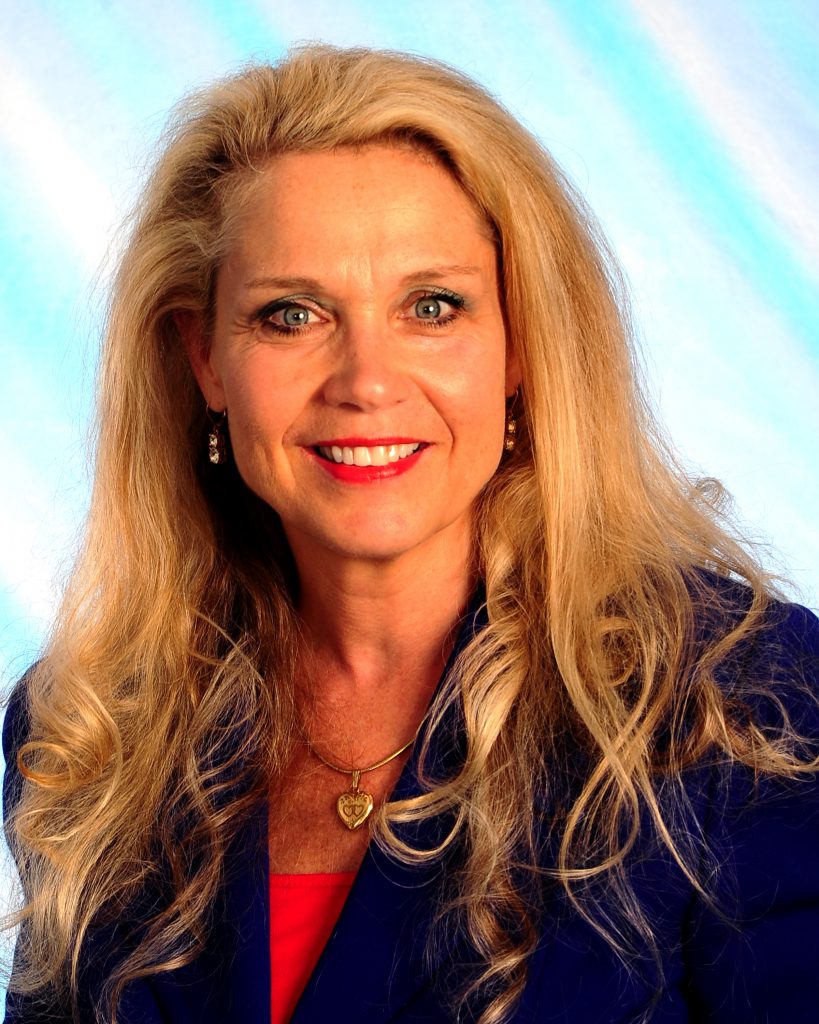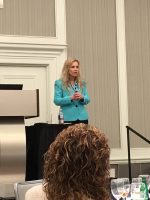Thank you for all you do to promote the faith-filled books, which are written to both entertain and minister to folks in some way. Without all of you incredibly special reviewers and your steadfast support, I don’t know how I could have had any Kingdom success with my book, “Secrets of the Pastor’s Wife: A Novel.” I am very grateful to all of you!
Yet for a very small number of reviewers, when you are reviewing and rating a self-published book, please remember your review holds significant weight. Indie authors often spend a lot of their hard-earned money on editors, book designers, formatting issues, etc., and sometimes also have to purchase large quantities of their books from self-publishing companies in order to get published. This can total thousands of dollars. There is no publishing staff putting a book together, rather an individual writer with a God-given vision.

One negative review or rating from a highly-followed reviewer could be damaging to a book’s sales potential, especially if this review is posted during the title’s initial release. After all, self-published books already have a questionable reputation in general due to some being poorly edited, which is a huge hurdle for a diligent author to overcome anyway.
Reviewers do need to warn their followers when a book is poorly written or not edited well though. But when an author has produced a credible work, please consider that any three star or even 3.5 star or under review accompanied with criticism might mean to a reviewer, “I still liked the book,” but to a potential reader, it says, “This is a mediocre work, and there are plenty of really great books out there, so why bother with it.” This is especially disheartening, if the book truly promotes the Gospel’s message.
I’m not referring to mean-spirited reviewers, who enjoy posting caustic or damaging things about a book just for fun. Most authors have suffered unfairly from their destructive words on occasion, since we can usually count on a small number of insensitive and emotionally troubled individuals in this world to be unkind or even cruel. There’s not much a writer can do to combat this type of hurtful viciousness.
Instead I’m talking about well-intentioned faith-driven reviewers who might not realize the intense weight their review can carry. Of course, if a book truly deserves a mediocre rating, a reviewer must follow their conscience in the matter. Plus, an author needs and can learn from constructive criticism from a wise reviewer, but only when it is cushioned and balanced by the positive attributes within a book.
Reviewing books myself on occasion, I simply do not leave a review or rate at book if it is 3 stars or under, or if I find it poorly written or edited in a sloppy manner. Still, I am not a reviewer called to recommend books to readers, so again, they might feel called to leave a negative review if they feel this is necessary when following their heart. I would never want a reviewer to be forced into being dishonest to support a book that should not be supported, but honesty and kindness do not have to be mutually exclusive.

Although, despite dozens of good reviews, self-published authors frequently do not have the support base to overcome even one negative review by an esteemed or major reviewer. A less-than-positive review, is also devastating for an author in a personal sense and emotionally painful, whether they are self-published or traditionally published. There is a fragile human being behind that author name on a book, one who is probably trying to do his or her very best to serve God as His wordsmith.
Again though, my deepest thanks to all of the caring and compassionate Christian reviewers who took the time to read and review my novel. I am grateful for every single one of you, and for your invaluable ministries of promoting God’s army of writers.

Christina Ryan Claypool has been featured on Joyce Meyer Ministries “Enjoying Everyday Life” TV show, and on CBN’s 700 Club. She is also an a national Amy/Ohio AP award-winning columnist, and two-time Chicken Soup for the Soul contributor. Her most recent book,“Secrets of the Pastor’s Wife: A Novel,” is available on all major online outlets. Contact her through her website at www.christinaryanclaypool.com.
#reviewers # Christianreviewers #book #books #review #bookreview #self-publishing #Indieauthor #self-publishedbook #theGospel






 Yet as a journalist, there is no violent episode more personally memorable than the one that occurred in Littleton, Colorado, on April 20, 1999. Twenty years ago, employed as a west central Ohio television reporter at WTLW TV 44, I was horrified by the live footage of bloodied bodies being transported on gurneys from Columbine High School. That historic afternoon, we witnessed a massive display of school violence. Sadly, I fear many folks have become hardened to horrific scenes of mayhem at learning institutions, because they are all too commonplace.
Yet as a journalist, there is no violent episode more personally memorable than the one that occurred in Littleton, Colorado, on April 20, 1999. Twenty years ago, employed as a west central Ohio television reporter at WTLW TV 44, I was horrified by the live footage of bloodied bodies being transported on gurneys from Columbine High School. That historic afternoon, we witnessed a massive display of school violence. Sadly, I fear many folks have become hardened to horrific scenes of mayhem at learning institutions, because they are all too commonplace. Christina Ryan Claypool is a freelance journalist and Inspirational speaker who has been featured on CBN’s 700 Club and Joyce Meyer Ministries Enjoying Everyday Life TV show. Her most recent book,
Christina Ryan Claypool is a freelance journalist and Inspirational speaker who has been featured on CBN’s 700 Club and Joyce Meyer Ministries Enjoying Everyday Life TV show. Her most recent book, 




 What I didn’t know then was that a Civil Rights movement was being birthed out of the frustration regarding injustices that African Americans like Clemmie could no longer bear. Not yet a first grader, I couldn’t imagine anyone hating such a wonderful woman, simply for the color of her skin. Eventually, my mother regained her health, so Clemmie no longer came to care for us. Yet her colorblind love, which was based on her faith in the Gospel’s message, “…Love one another, as I have loved you…” had made a lasting impression.
What I didn’t know then was that a Civil Rights movement was being birthed out of the frustration regarding injustices that African Americans like Clemmie could no longer bear. Not yet a first grader, I couldn’t imagine anyone hating such a wonderful woman, simply for the color of her skin. Eventually, my mother regained her health, so Clemmie no longer came to care for us. Yet her colorblind love, which was based on her faith in the Gospel’s message, “…Love one another, as I have loved you…” had made a lasting impression. he late Jewish Holocaust survivor, Liesl Sondheimer, often shared a profound truth regarding racial forgiveness. Like Nazi Hunter Simon Wiesenthal, Mrs. Sondheimer spent decades retelling the painful account of the extermination of more than six million European Jews during World War II. Unlike Wiesenthal’s quandary concerning forgiveness outlined so poignantly in his book The Sunflower, my dear friend, Liesl, always maintained that, “You must forgive, but never forget, or Hitler has won.”
he late Jewish Holocaust survivor, Liesl Sondheimer, often shared a profound truth regarding racial forgiveness. Like Nazi Hunter Simon Wiesenthal, Mrs. Sondheimer spent decades retelling the painful account of the extermination of more than six million European Jews during World War II. Unlike Wiesenthal’s quandary concerning forgiveness outlined so poignantly in his book The Sunflower, my dear friend, Liesl, always maintained that, “You must forgive, but never forget, or Hitler has won.” “Public speaking ranks as our No. 1 fear, even outranking the fear of death, says Peter Desberg, PhD, professor of psychology at California State University,” according to
“Public speaking ranks as our No. 1 fear, even outranking the fear of death, says Peter Desberg, PhD, professor of psychology at California State University,” according to 
 Secondly, “Be prepared.” Absolutely, do a run-through for technical issues at the designated venue ensuring your technology is compatible with their technology. Plus, practice, practice, practice your presentation in front of a mirror, for a willing family member, or even for your dog. Also, make sure it fits into the allotted time slot. Thirdly, “Be confident.” Your knees might be shaking, your stomach might be rumbling, and you might be perspiring from terror, but employ the classic philosophy, “Don’t let them see you sweat.” Smile and act like “I’ve got this,” even if you feel like you don’t.
Secondly, “Be prepared.” Absolutely, do a run-through for technical issues at the designated venue ensuring your technology is compatible with their technology. Plus, practice, practice, practice your presentation in front of a mirror, for a willing family member, or even for your dog. Also, make sure it fits into the allotted time slot. Thirdly, “Be confident.” Your knees might be shaking, your stomach might be rumbling, and you might be perspiring from terror, but employ the classic philosophy, “Don’t let them see you sweat.” Smile and act like “I’ve got this,” even if you feel like you don’t. “Engaging your audience” holds true whether you are speaking to a civic club, delivering a sermon, reporting for TV, or instructing a college class. Envision one person in the crowd, who sincerely needs to hear what you have to say. Then speak to that fictitious individual who probably really does exist out there. That way your presentation won’t seemed staged or emotionless.
“Engaging your audience” holds true whether you are speaking to a civic club, delivering a sermon, reporting for TV, or instructing a college class. Envision one person in the crowd, who sincerely needs to hear what you have to say. Then speak to that fictitious individual who probably really does exist out there. That way your presentation won’t seemed staged or emotionless. Christina Ryan Claypool is a freelance journalist and public speaker both in the secular and Christian communities. Her new Inspirational book,
Christina Ryan Claypool is a freelance journalist and public speaker both in the secular and Christian communities. Her new Inspirational book,  During October, we observe “Adopt a Shelter Dog Month” sponsored by the
During October, we observe “Adopt a Shelter Dog Month” sponsored by the 


 “I don’t have a pencil.” The over-sized middle school boy explained his plight to me, while staring into space and not doing his assigned work. “My mom’s dead,” he said matter-of-factly, offering this as the reason why he was without a pencil. I swallowed the lump in my throat, refusing to let the adolescent see my look of unchecked sympathy, because no teenager wants to be the object of anyone’s pity. I grabbed a pencil off of the teacher’s desk and handed it to him with an encouraging smile.
“I don’t have a pencil.” The over-sized middle school boy explained his plight to me, while staring into space and not doing his assigned work. “My mom’s dead,” he said matter-of-factly, offering this as the reason why he was without a pencil. I swallowed the lump in my throat, refusing to let the adolescent see my look of unchecked sympathy, because no teenager wants to be the object of anyone’s pity. I grabbed a pencil off of the teacher’s desk and handed it to him with an encouraging smile.
 So, recently when I read the Internet headline,
So, recently when I read the Internet headline, 
 Dear young woman,
Dear young woman, Education will be a game changer for you. Read, read, read, anything enabling you to grow, to learn, to embrace new horizons. Be disciplined in your studies, delay immediate gratification to achieve your educational goal whatever that is. The life you change will be your own.
Education will be a game changer for you. Read, read, read, anything enabling you to grow, to learn, to embrace new horizons. Be disciplined in your studies, delay immediate gratification to achieve your educational goal whatever that is. The life you change will be your own. About your family: They need to be your top priority. Success in a worldly sense will fade away soon enough, but you will find out your family is all you really have.
About your family: They need to be your top priority. Success in a worldly sense will fade away soon enough, but you will find out your family is all you really have.